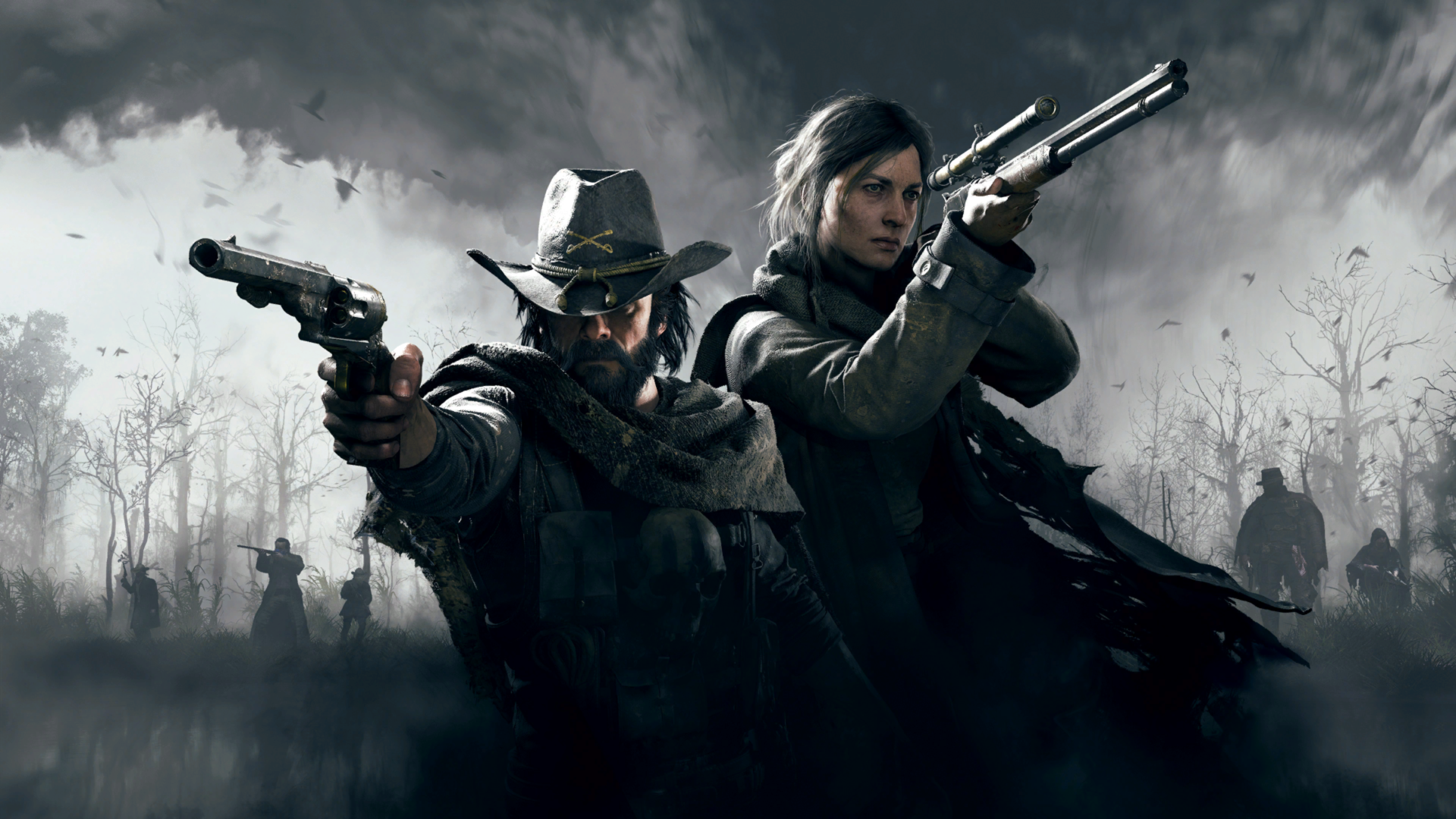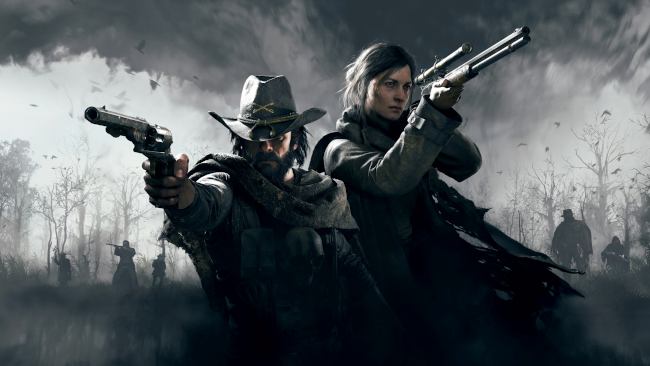Ever see games like Fortnite Battle Royale or PlayerUnknown’s Battlegrounds, and think they lacked a certain sense of danger? Well, Crytek has released a port of their first-person survival horror game Hunt: Showdown on the PS4, and it features a dark, brooding color scheme, is set in the sweltering marshes of Louisiana, and contains nightmarish creatures such as zombies, giant spiders, river monsters, and more in a genre mashup that promises to get your heart racing. But does it deliver a fun experience on the console? Find out in our Hunt: Showdown PS4 review.
Bred in the Bayou
Hunt: Showdown takes place in Louisiana in 1895. A secret society of bounty hunters has the high-risk, high-reward task of clearing the bayou of various horrors, creatures of such monstrous description and strength that they seem all but impossible to destroy. Of course, while the environment and its mutilated inhabitants pose a threat, other bounty hunters are usually the most dangerous game enemies to watch out for.
Crytek predictably used their in-house CRYENGINE game engine, and it runs quite well on the PS4 Pro. Though with the frame rate locked at 30 fps in the name of fairness, whatever enhancements the game has received for the premium system are humble at best. HDR is also not currently supported, despite the launch trailer indicating the game had this feature. It may be coming, but that probably depends upon the number of gamers who pick up a PS4 copy of Hunt: Showdown. At any rate, the setting of 1895 Louisiana is well represented, as the muggy swampland is filled with thick brush, old Civil War-era buildings, and a generally rustic appearance. Graphically, it has a nice level of detail to both the environment and player (and especially weapons), though water reflections occasionally break immersion as they reflect items in the player’s view when they shouldn’t. Other than that, and the occasional texture pop-in (usually seen on doors, which are interactive), things look pretty good at this late stage in the current generation of consoles.
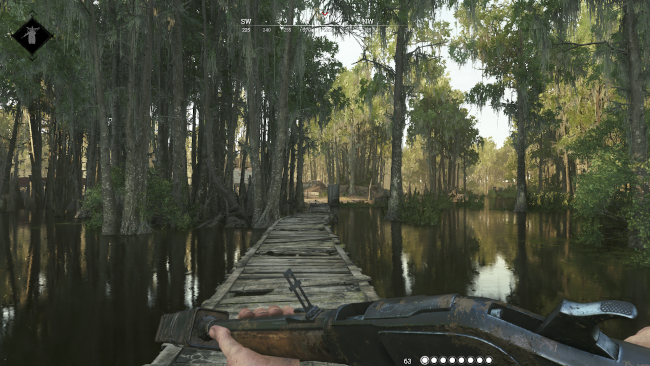
Grab Some Cans
One thing Hunt: Showdown has nailed is sound design. The developer recommends playing on headphones and reminds players of this every time the game first boots up. This is because a large portion of the game’s design hinges on players paying special attention to their surroundings. For instance, while often the shortest path from where the player is to their next objective is a pretty straight shot along a dirt path, that can leave them exposed for monsters or other players to attack them. However, it is usually the quietest path, as walking in the forest will usually result in stepping on loud twigs every now and then. While that might not present a problem most of the time, the closer players get to objectives, the more dangerous making loud noises becomes.
Around certain objectives, there are items such as glass bottles or hooks hanging from chains which, in true horror movie fashion, alert nearby enemies to your location if touched. Broken glass, rusty gates, and other items can also be quite loud. A murder of crows can be disrupted by walking too closely to them, and even injured horses will get startled if you venture near. Not only can these noises alert players, but other NPC enemies will be drawn to your location, and they usually like to travel in groups. Guns are also very loud unless silenced, and you’ll often hear the telltale signs of nearby and distant enemies when they discharge their weapons. There is no on-screen notification of who killed who, so when the bullets stop flying it’s anyone’s guess as to what the outcome of a gunfight was, which leaves the tension at a heightened level.
There are two game modes in Hunt: Showdown, Quickplay and Bounty Hunt. Quickplay is, as the name suggests, a shorter round lasting 15 minutes or less. Players are tasked with finding wellsprings of energy and collecting as much of that energy as they can before other players do the same thing. The quicker players can get to and collect this finite resource, the higher their chance of victory. Speaking of which, only one player can ever win in this mode. Bounty Hunt is the showcase mode and is a longer, hour-long match where players and teams of two must seek out and destroy a boss creature, whose lair must be found either by finding three clues hidden in the world at random locations, or simply stumbling upon it by chance. A bounty can be claimed by killing the boss and performing a banishment ritual (basically, defending the position for a little while), which will spawn two bounty tokens. Collecting one of these tokens, reaching and defending an extraction point will result in a large payday, and it is no easy feat, especially against formidable opponents.
Team Play Encouraged
Naturally, playing in a team increases your chance of survival as you can strategize and cover each other’s blind spots, heal, etc. If you do choose to play alone, there are bonuses awarded for completing contracts by yourself, which some players might want if they are grinding for that next level. You can invite others to your group or join up randomly if you don’t want to go it alone. There is a training mode available at three different difficulty levels, which pays out blood bonds, the game’s premium currency, upon completion for the first time.
How much enjoyment can be derived from these two modes is largely dependent upon how much time a player sinks into the game. Expect to die, and die a lot, in the early hours; If not by another player, then definitely by the environment. Even a lowly horde of zombies can catch an experienced player by surprise, and some enhanced enemies can and will knock down doors to get to you. This constant need to watch out for other players plus the computer-controlled horrors keeps the tension going. Experience points, credits, and blood bonds carry over from each match, but once the player reaches level 11, hunters can be permanently lost once killed. Rewards are also cut in half whenever the player is killed, so sometimes simply surviving until the end of a match, even without having completed any bounties, can be a more lucrative venture than attempting to kill a player who is dominating.
While hunters can be lost forever, player progress is permanent. New weapons are constantly unlocked as the player levels up, and new abilities are also unlocked, which can be equipped on hunters. Each hunter has their own individual level up to 50, though with the permadeath feature getting a hunter to such a level will be quite a feat. Once a weapon is unlocked, it can be purchased to be equipped by a hunter, and thankfully they are not too expensive in the event of a hunter’s death. New hunters can be recruited from a dedicated tab, whose stats, loadout and abilities are randomized each time. This allows players to utilize equipment and abilities that they would otherwise have to grind for, which can inject a bit of luck into an otherwise skills-based loadout system.
Connection Required
Those looking for single player, or even offline experiences, should look elsewhere. There is no campaign to speak of in Hunt: Showdown, and the two main game modes are online only. There is some unlockable lore, which doles out pieces of information on the game’s different enemies as you encounter them, and more information is revealed once you’ve killed a set amount of each. Outside of the lore, your network connection will determine how fluid of an experience you will have for most of the game. Matchmaking takes a few minutes as of this writing, and often a player who has selected the US West server as their preference will nonetheless be placed on a US East server, perhaps owing to a low player count. Being placed in a region that isn’t your own automatically places you at a disadvantage, as an in-game warning will frequently alert you to a high ping problem. My advice, in that case, is to equip a weapon that deals high damage over a wide angle, such as a shotgun, so timing isn’t as big of a deal.
Hunt: Showdown is perfect for gamers who are in it for the long haul. Those that love the rush of endorphins that come with a long-sought-after victory, and who are okay with death after death after near-victory after dumb mistake/disconnection/other tragedy that hinders an otherwise flawless ascent towards the next bloodline level. There is a drip feed of rewards that will help those who have trouble seeing the light at the end of the very dark, blood-soaked, creaking tunnel of horrors located in the Deep South, but to become good at Hunt: Showdown, one must be willing to sacrifice. At a launch price of $39.99, the lack of game modes may disappoint, but the variety of encounters and decent amount of unlockables does make it an easier purchase for fans of this style of games.
Hunt: Showdown review code provided by publisher. Version 1.02 reviewed on a PS4 Pro. For more information on scoring please see our Review Policy.
-
A fun, scary environment
-
Great sound design
-
PvE and PvP elements keep things interesting
-
Only two game modes
-
Online-only gameplay
Hunt Showdown PS4 Review
-
Hunt Showdown PS4 Review #1

-
Hunt Showdown PS4 Review #2
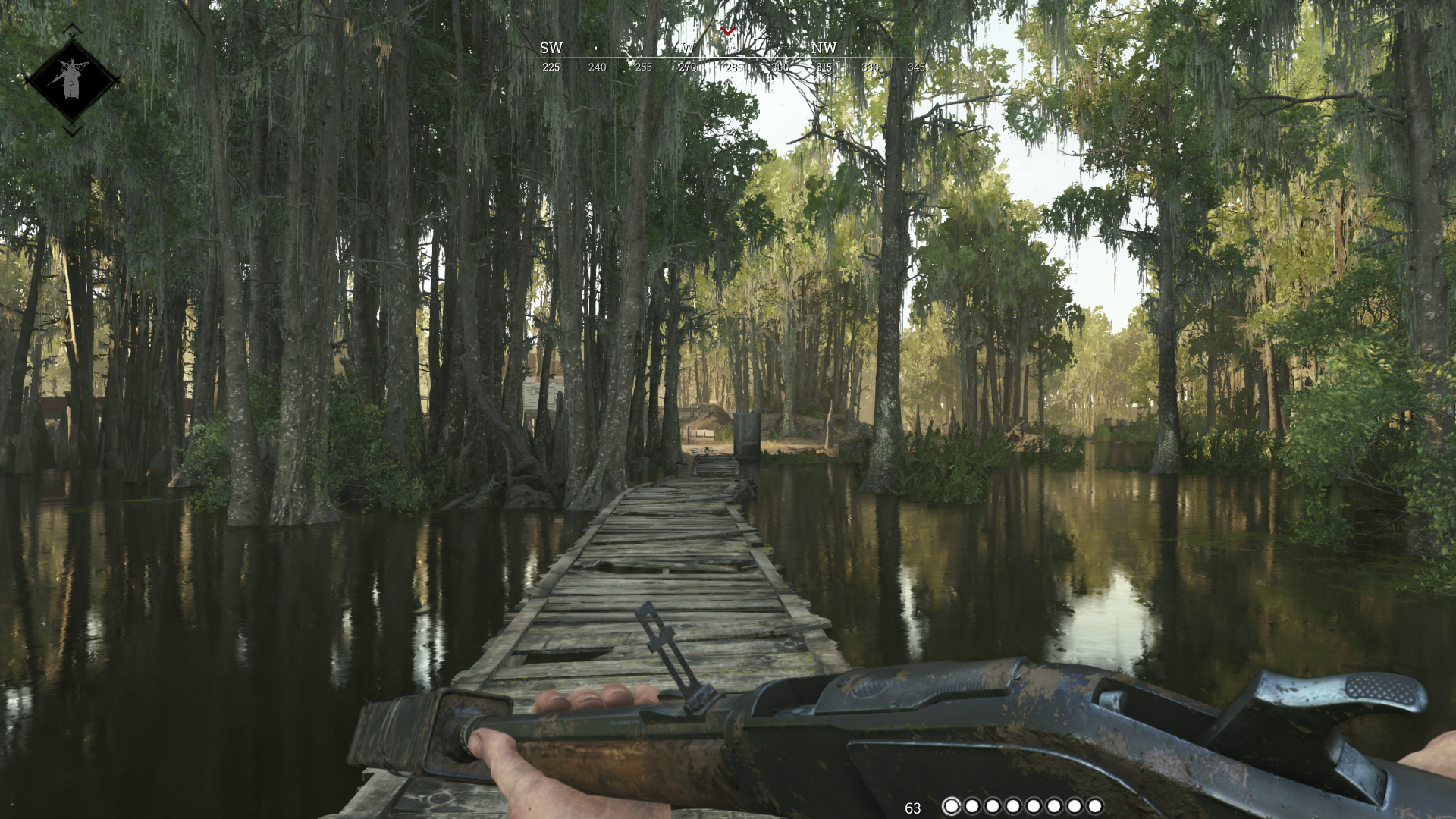
-
Hunt Showdown PS4 Review #3
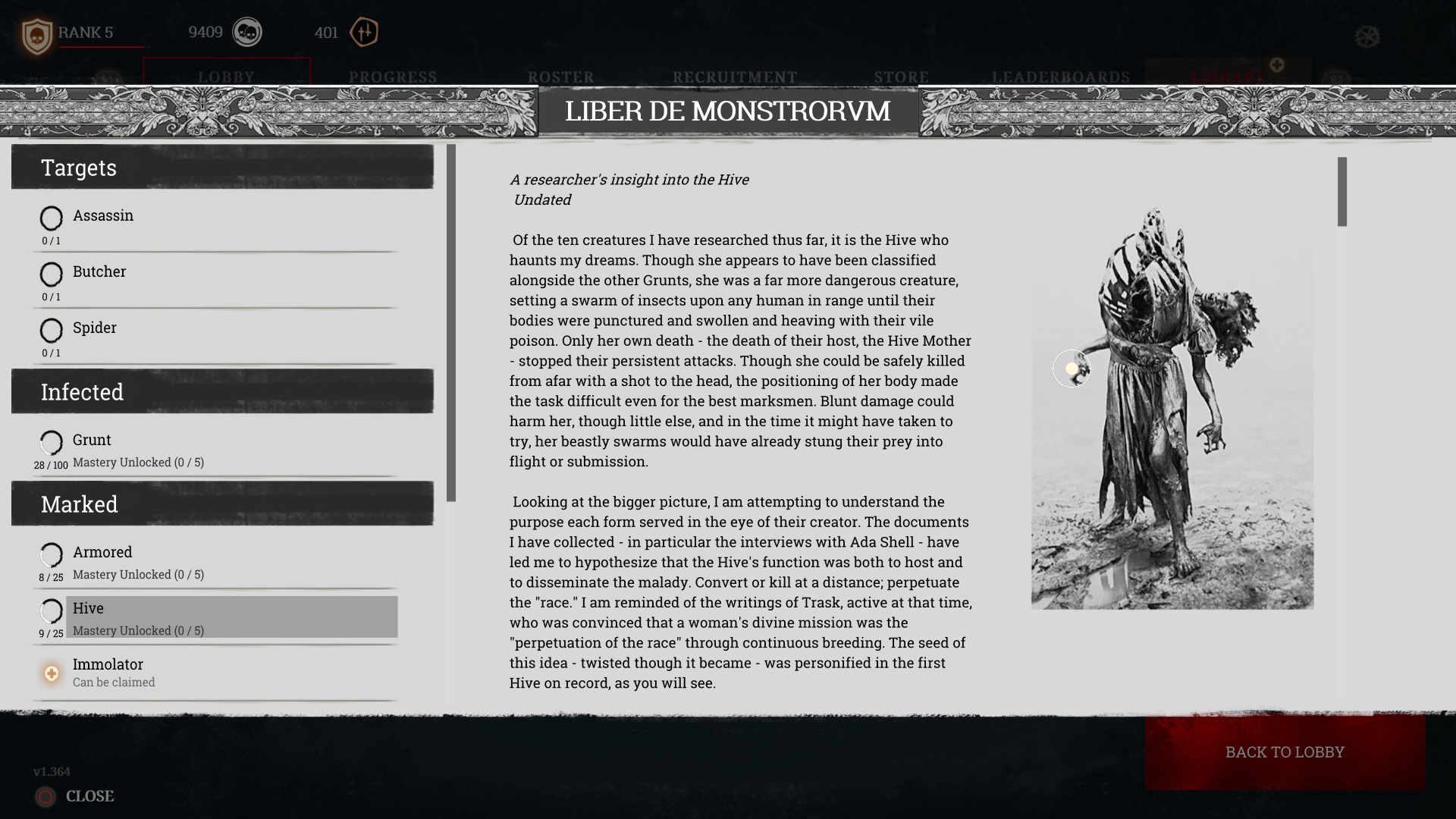
-
Hunt Showdown PS4 Review #4
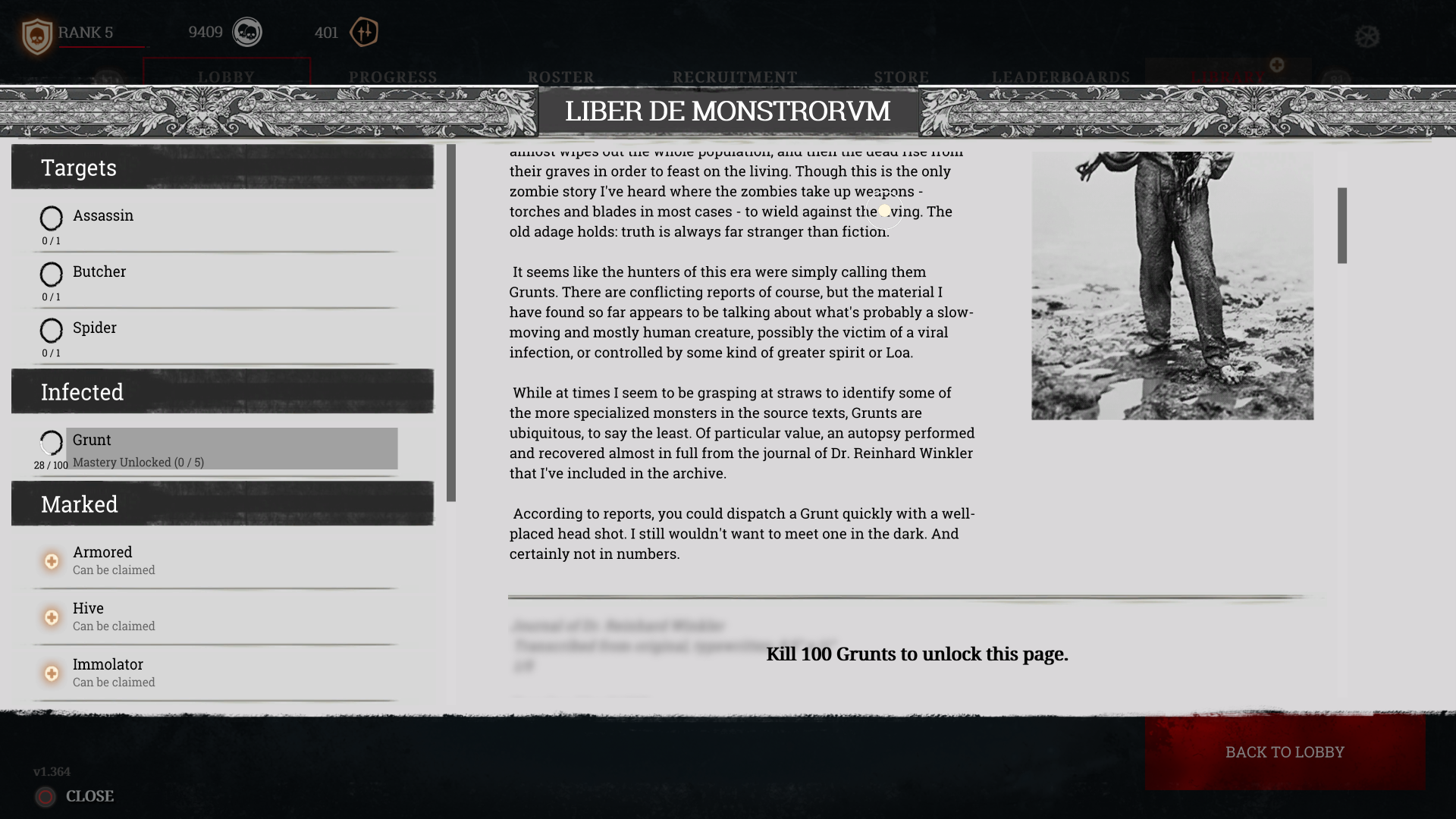
-
Hunt Showdown PS4 Review #5
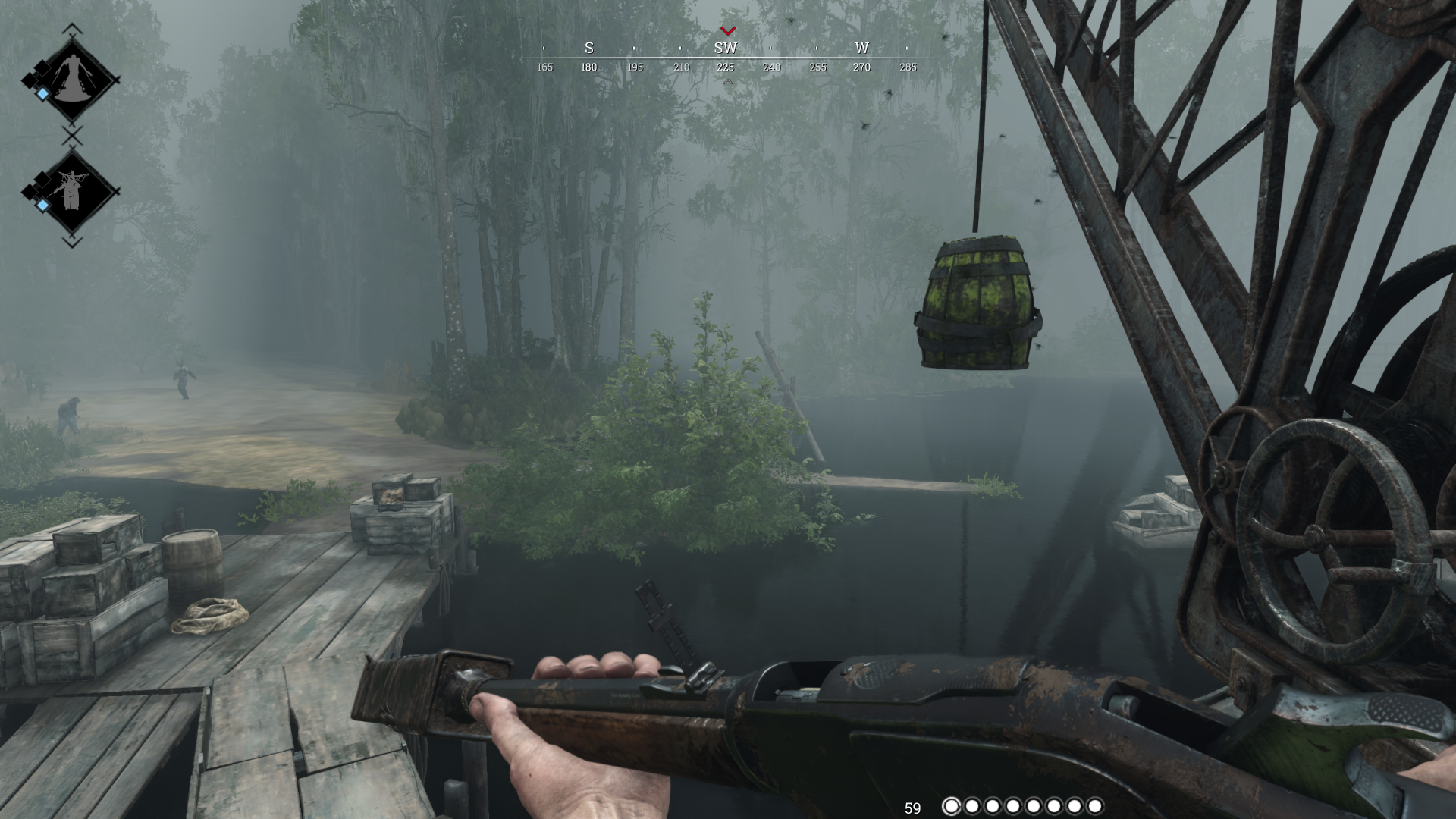
-
Hunt Showdown PS4 Review #6
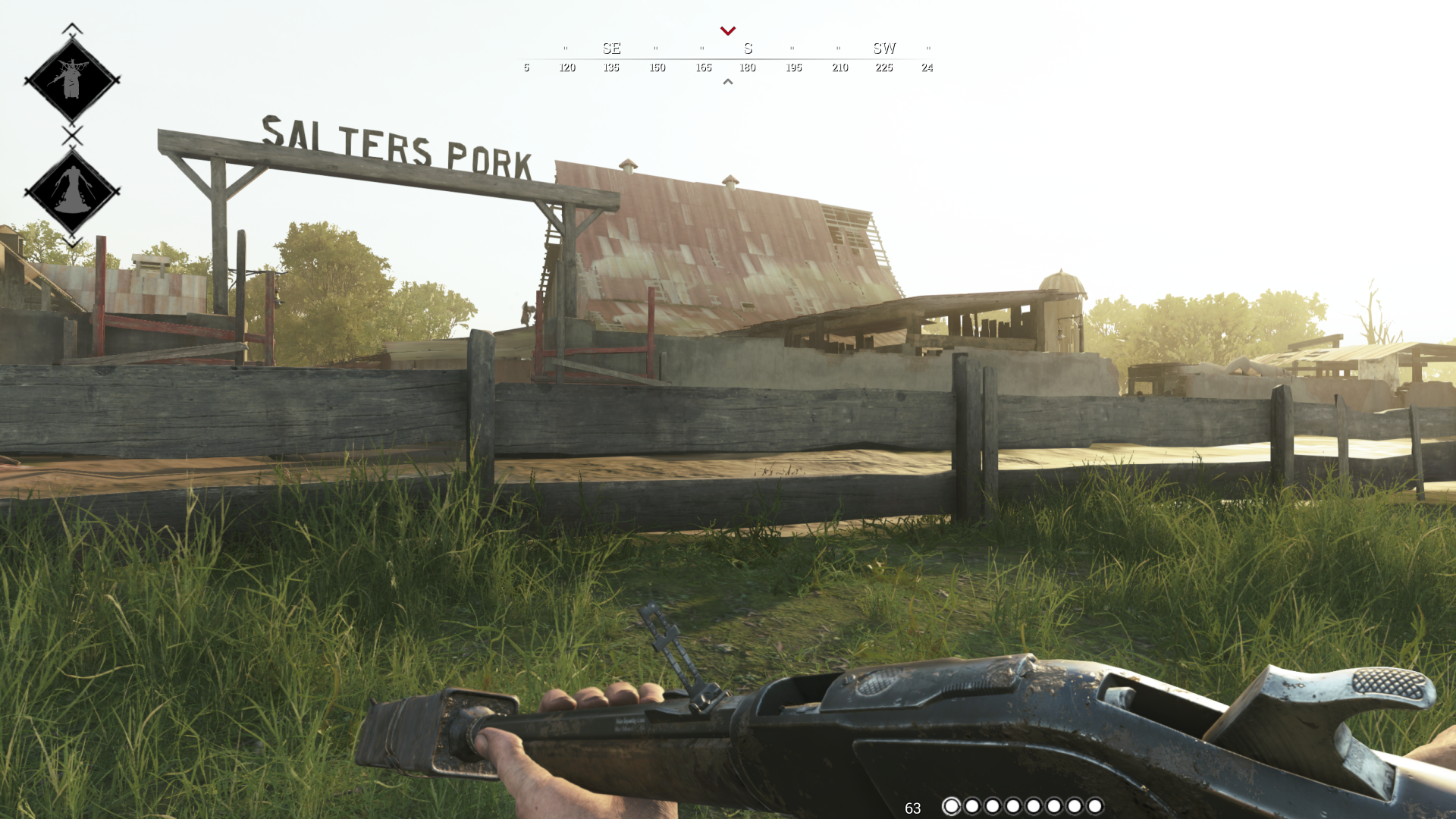
-
Hunt Showdown PS4 Review #7

-
Hunt Showdown PS4 Review #8

-
Hunt Showdown PS4 Review #9

-
Hunt Showdown PS4 Review #10

-
Hunt Showdown PS4 Review #11
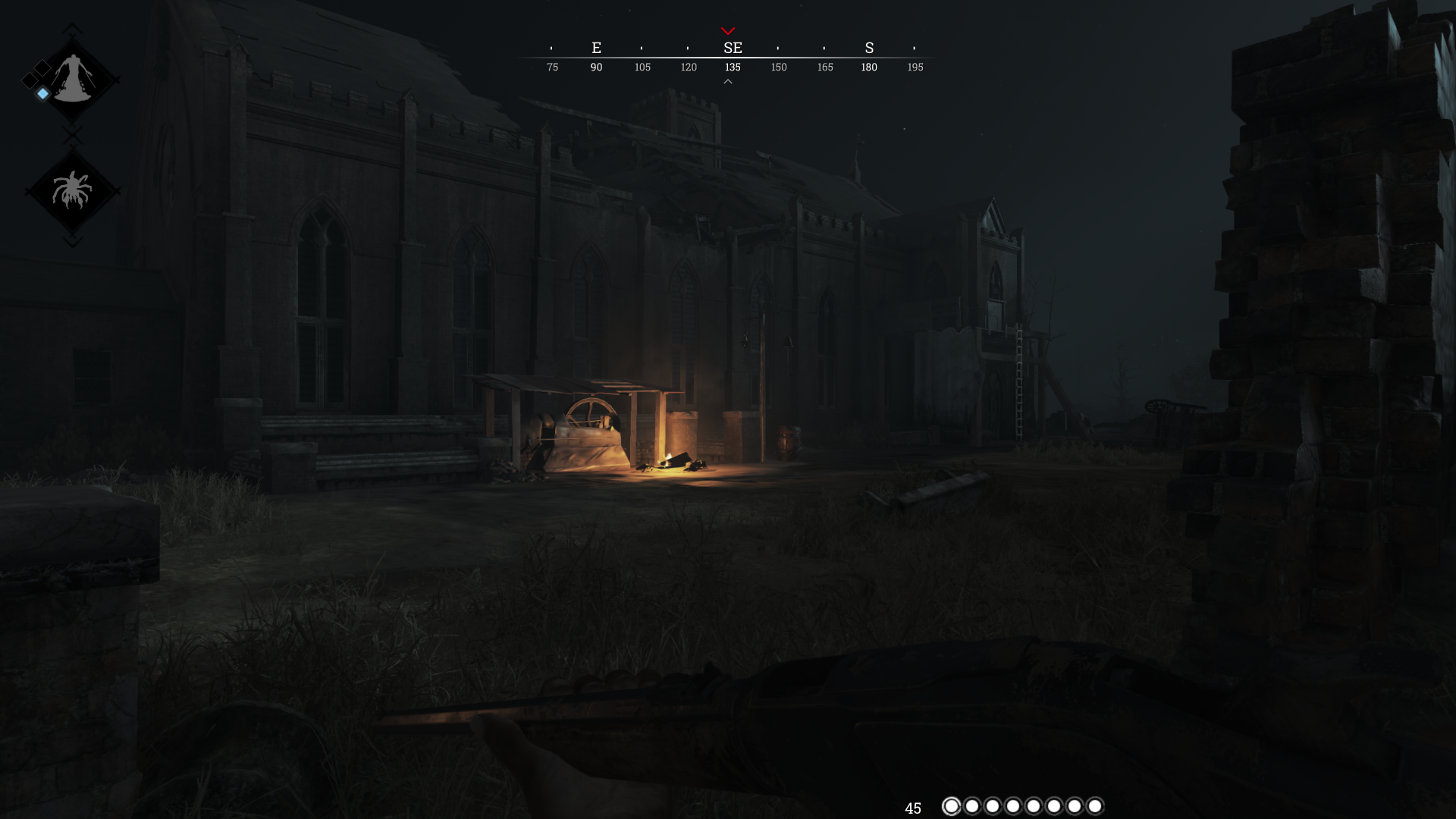
-
Hunt Showdown PS4 Review #12
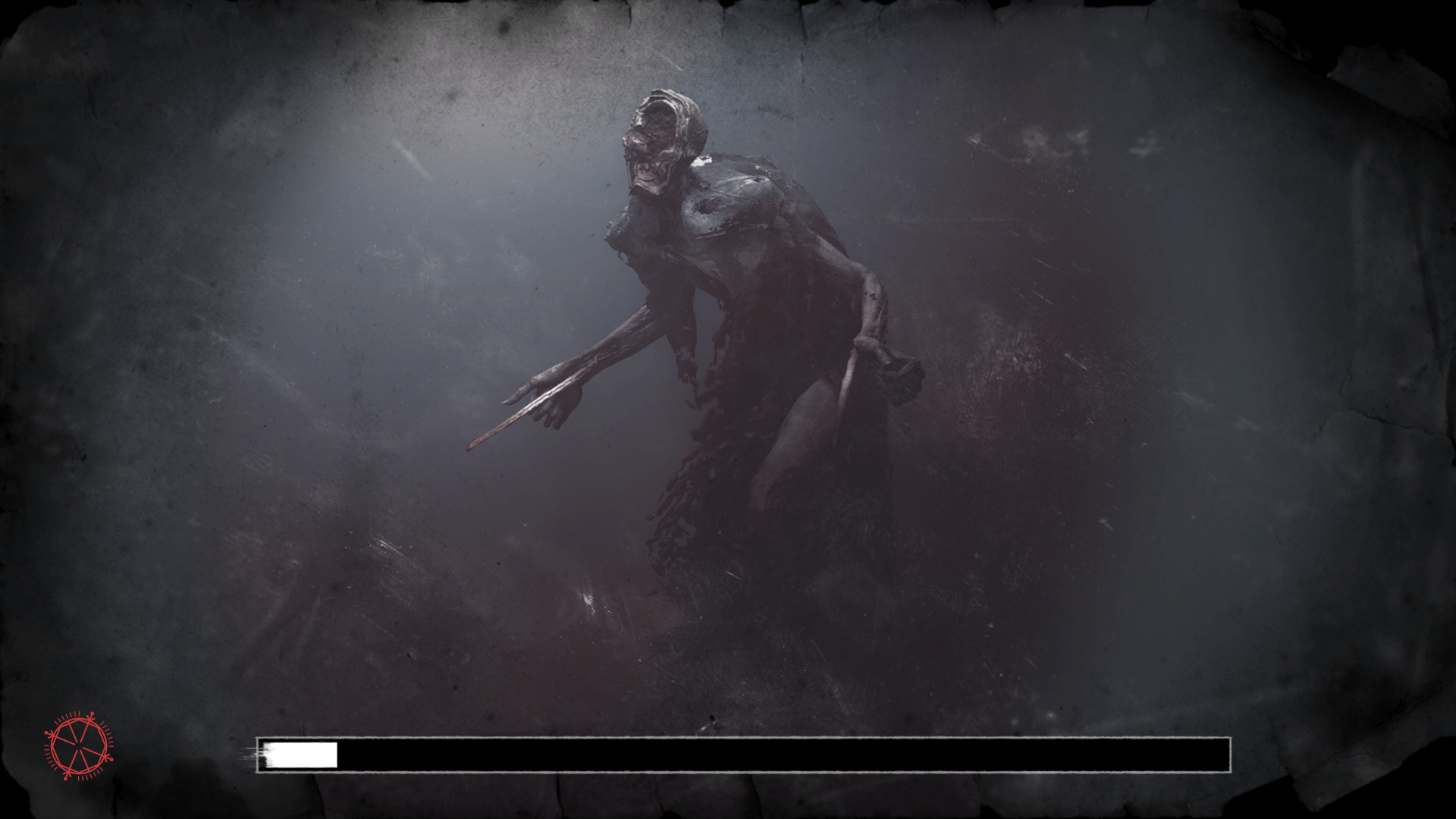
-
Hunt Showdown PS4 Review #13
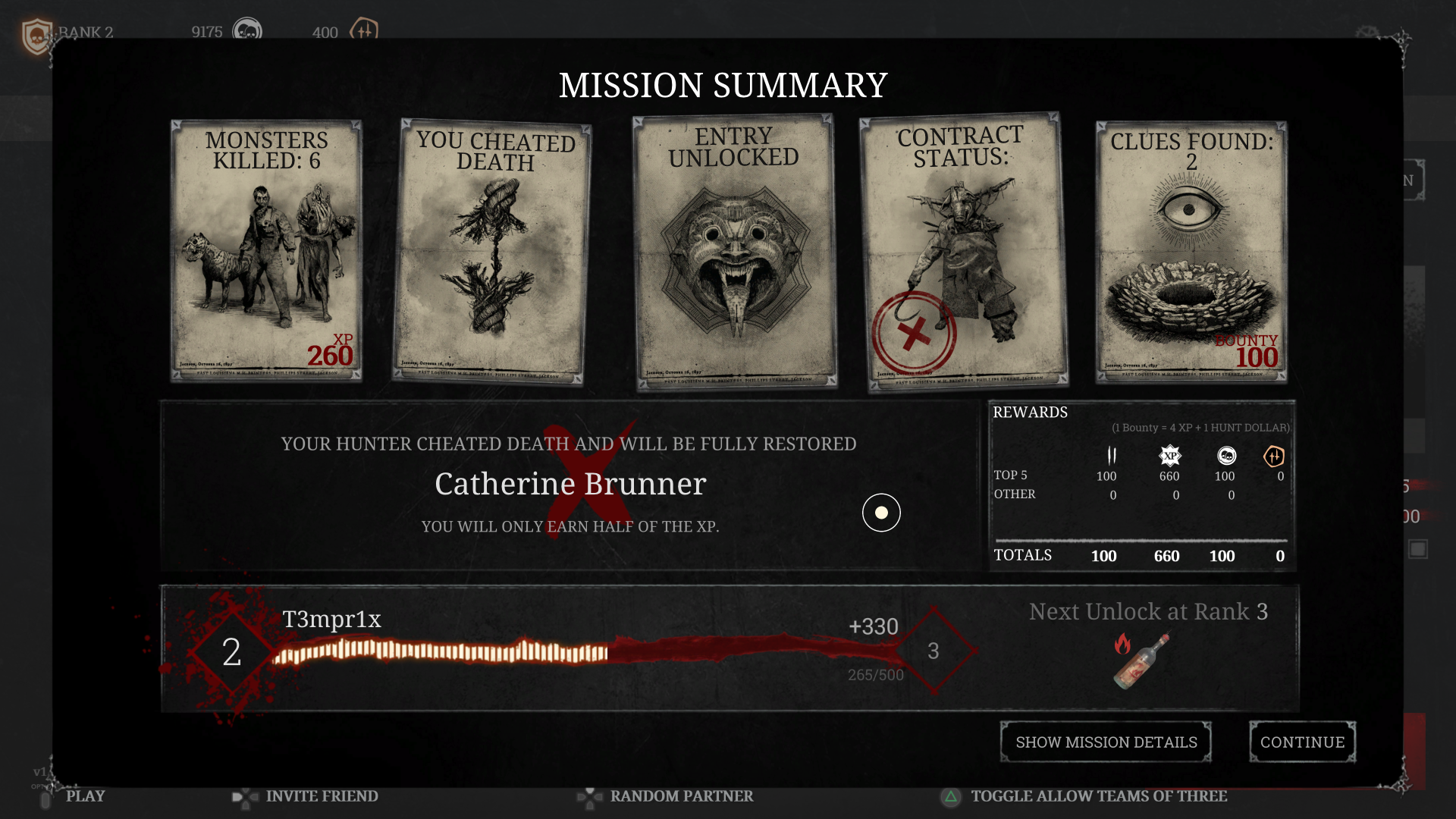
-
Hunt Showdown PS4 Review #14
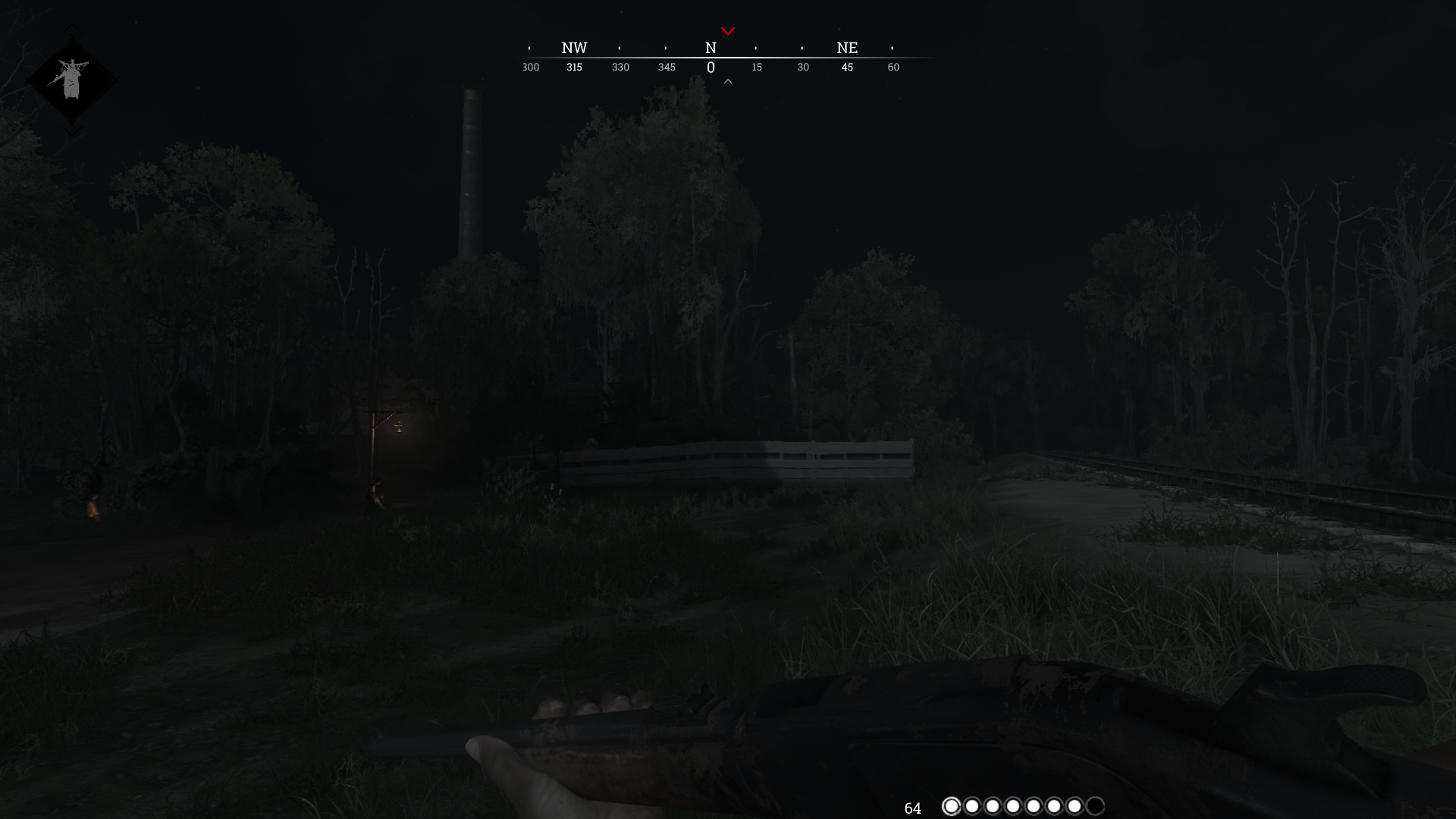
-
Hunt Showdown PS4 Review #15
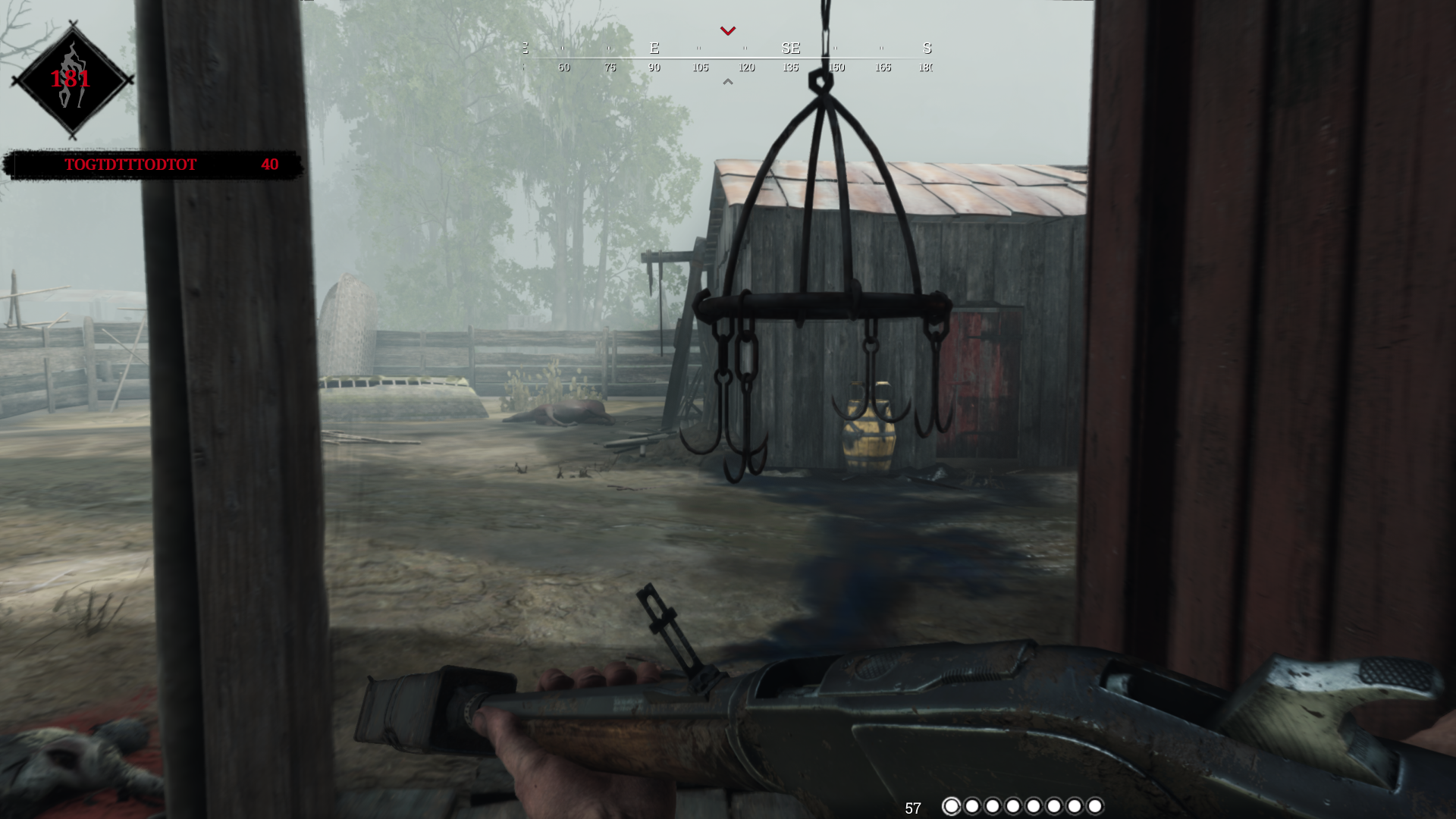
-
Hunt Showdown PS4 Review #16
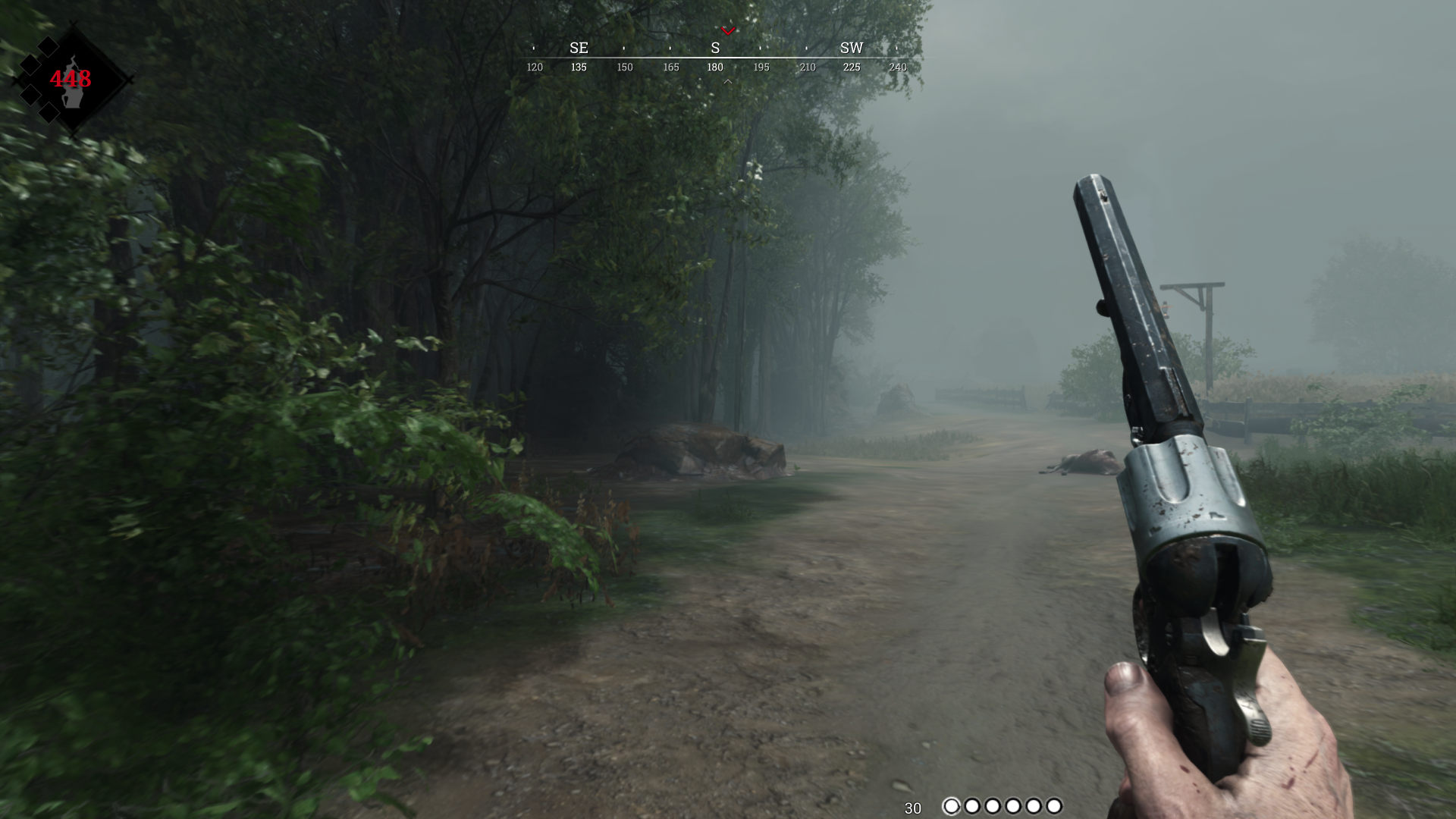
-
Hunt Showdown PS4 Review #17
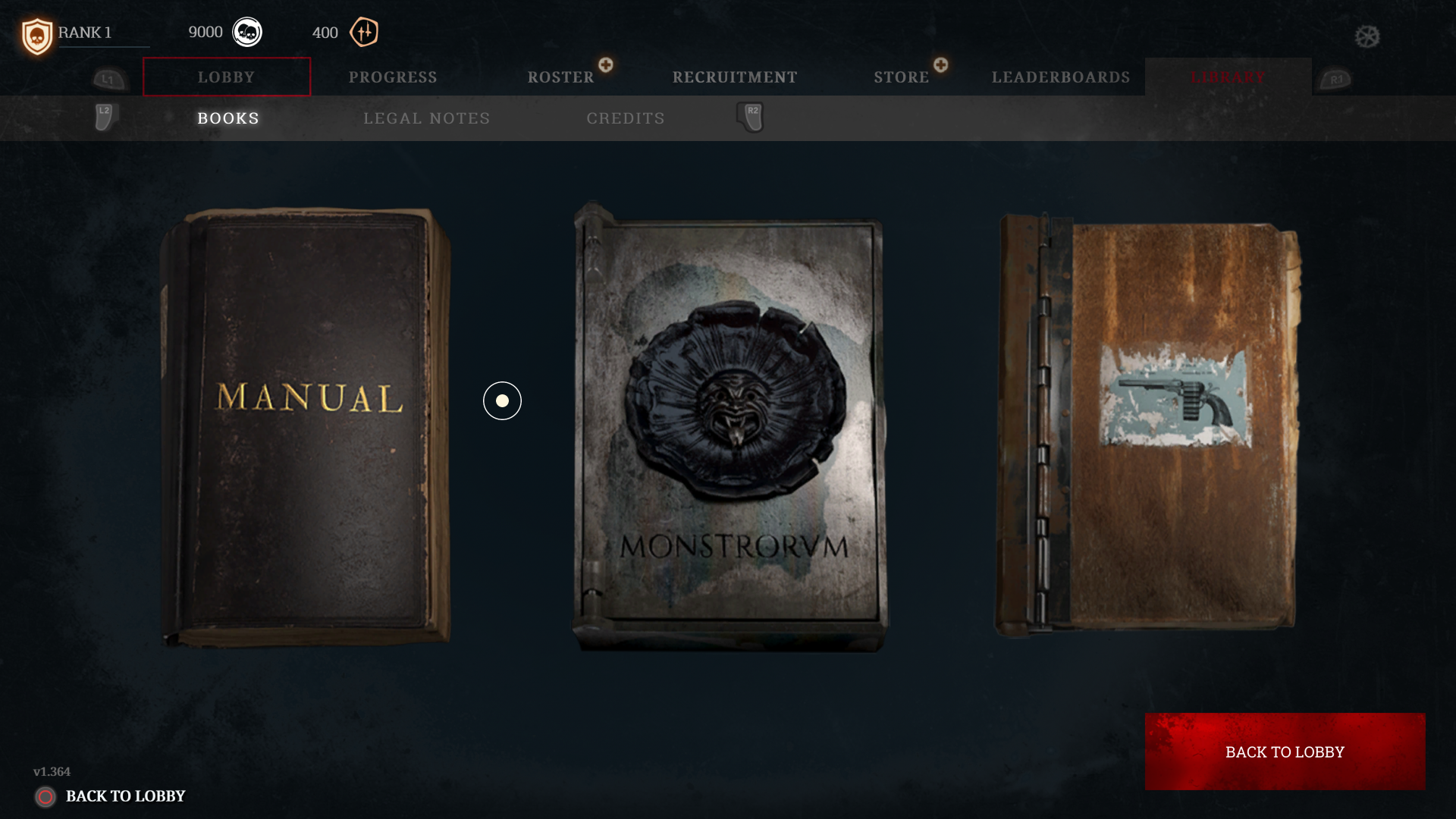
-
Hunt Showdown PS4 Review #18
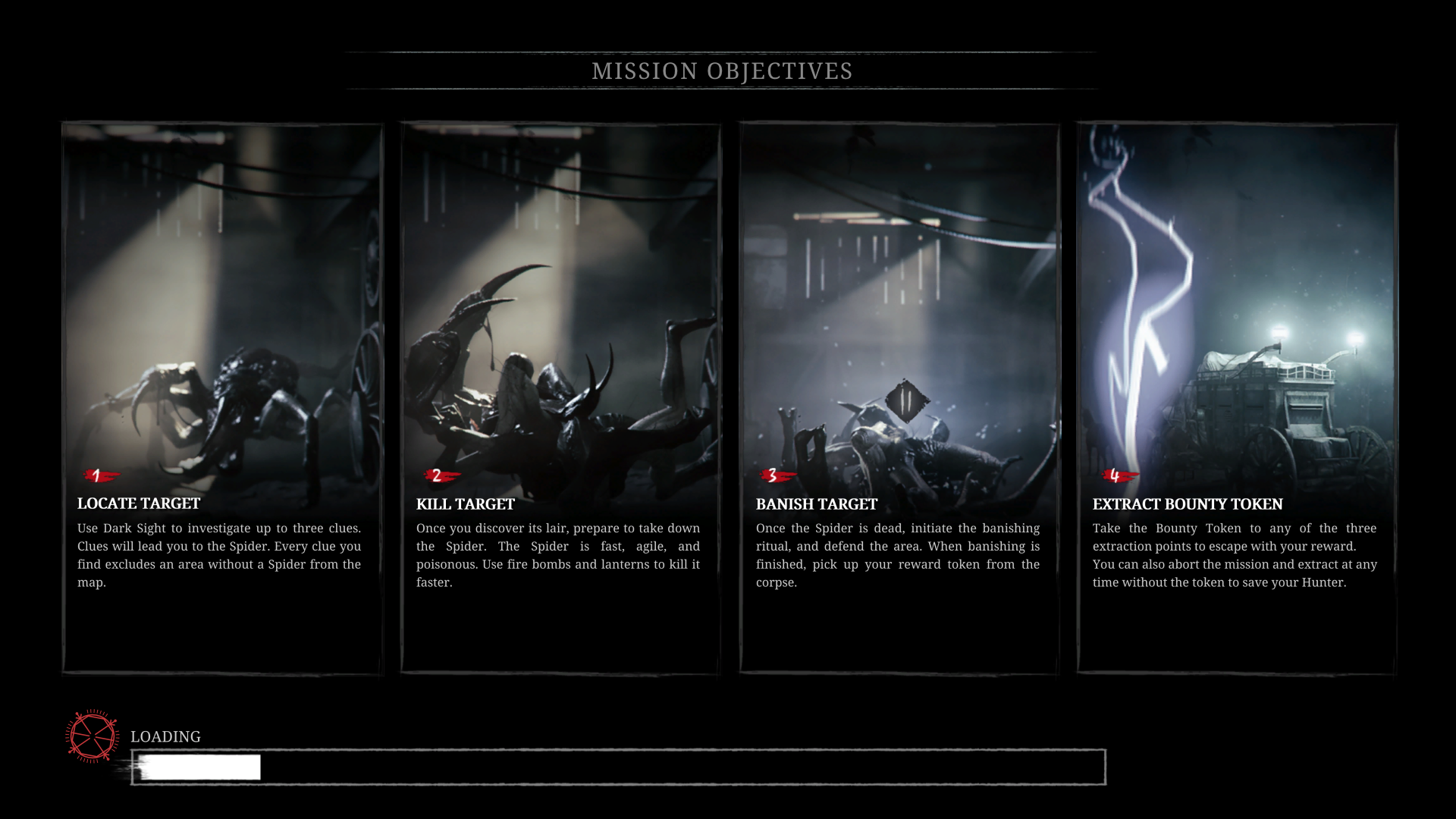
-
Hunt Showdown PS4 Review #19
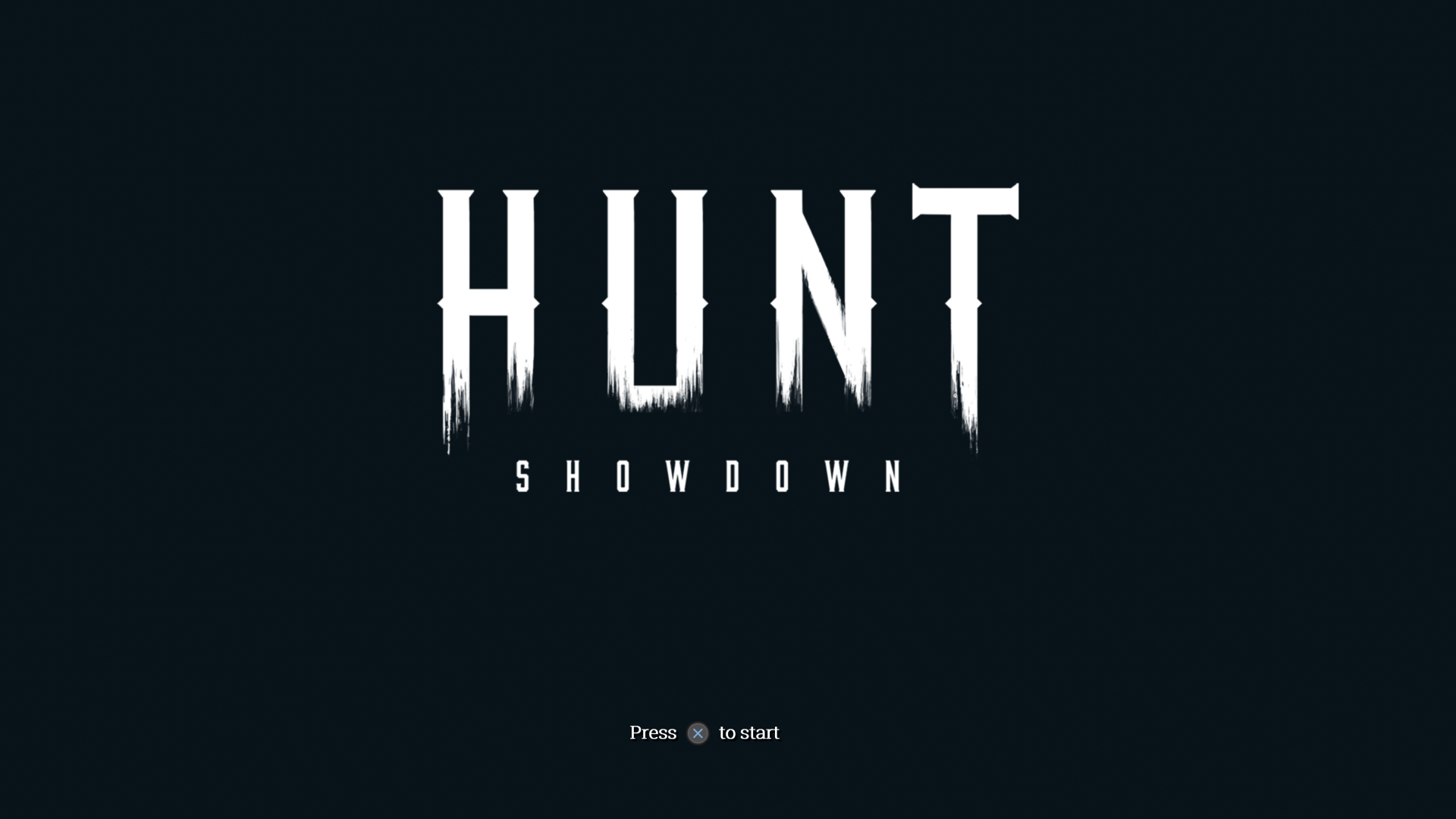
-
Hunt Showdown PS4 Review #20
